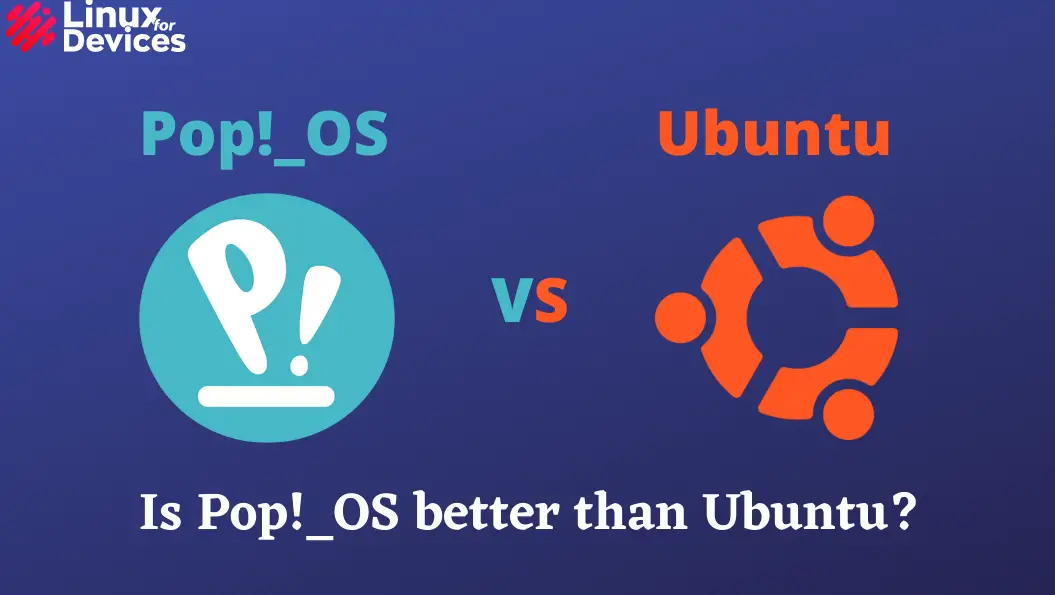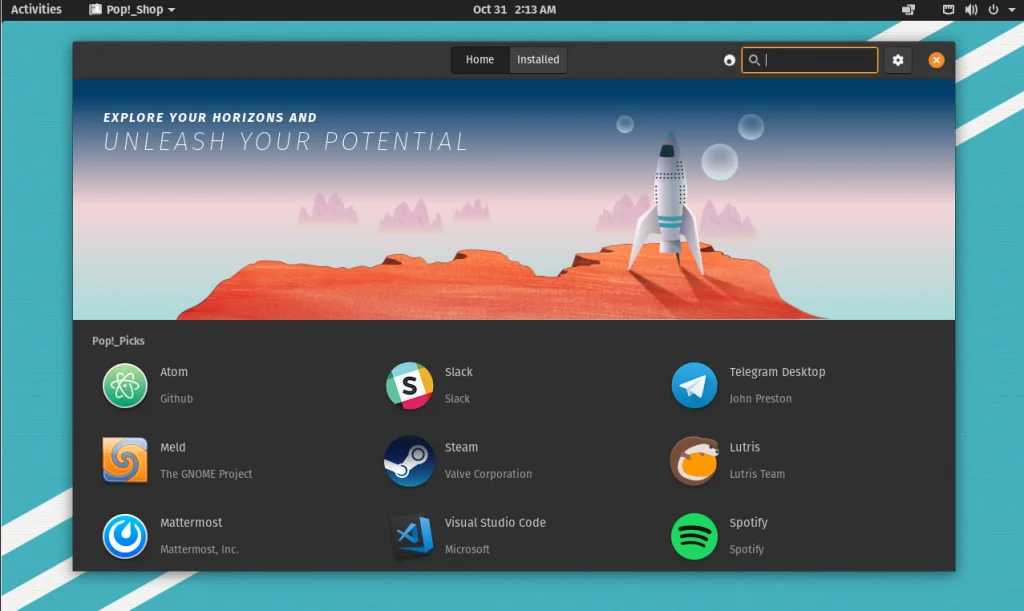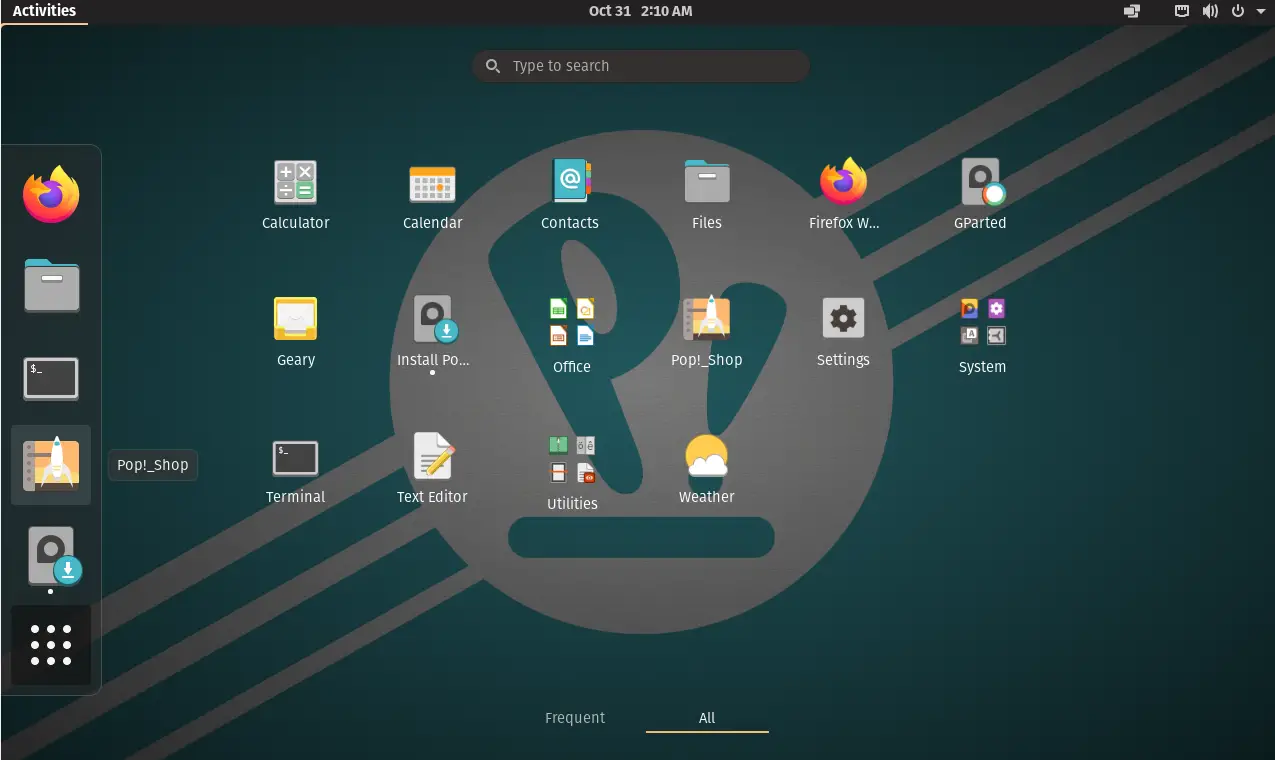Ubuntu vs. Pop!_OS: System76’s Refined Experience

Ubuntu and Pop!_OS are two popular Linux distributions that offer a great user experience. However, there are some key differences between the two distributions that make them better suited for different types of users.

Ubuntu is a more general-purpose distribution that is suitable for a wide range of users, from beginners to experienced Linux users. It has a large community of users and developers, which means that there is a lot of support available.

Pop!_OS is a distribution that is specifically designed for System76’s hardware. It is based on Ubuntu, but it includes a number of features that are tailored to System76’s laptops and desktops. These features include a custom desktop environment, a custom kernel, and a number of pre-installed applications that are optimized for System76’s hardware.
Here is a table that summarizes the key differences between Ubuntu and Pop!_OS:
| Feature | Ubuntu | Pop!_OS |
|---|---|---|
| Target audience | General-purpose users | System76 hardware users |
| Community | Large | Smaller, but focused on System76 hardware |
| Desktop environment | GNOME | Custom Pop!_OS desktop environment |
| Kernel | Linux kernel | Custom System76 kernel |
| Pre-installed applications | Variety of applications | Applications optimized for System76 hardware |
Which distribution should you choose?
If you are a general-purpose user who is looking for a distribution that is easy to use and has a large community of support, then Ubuntu is a good choice.
If you are a System76 hardware user who is looking for a distribution that is tailored to your hardware, then Pop!_OS is a good choice.
Ultimately, the best way to decide which distribution is right for you is to try both of them and see which one you prefer.**Ubuntu Vs. Pop!_os: System76’s Refined Experience**
Executive Summary
In the realm of Linux distributions, Ubuntu and Pop!_OS stand out as two of the most popular and highly regarded options. Both offer a user-friendly and stable computing experience, but they differ in certain aspects that can make one a better choice depending on a user’s specific needs and preferences. This article explores the key differences between Ubuntu and Pop!_OS to help readers make an informed decision about which distribution suits them best.
Introduction
Ubuntu and Pop!_OS are both based on Debian Linux, but they have their own unique approaches and philosophies. Ubuntu, developed by Canonical Ltd., is known for its focus on stability and broad compatibility. Pop!_OS, on the other hand, is developed by System76, a hardware manufacturer specializing in Linux laptops and desktops. Pop!_OS aims to provide a refined and tailored experience, optimizing performance and aesthetics.
Top 5 Differences
1. Desktop Environment
- Ubuntu: Uses the GNOME desktop environment by default.
- Pop!_OS: Uses a customized version of the GNOME desktop, called COSMIC, which offers a more modern and intuitive user interface.
2. Hardware Compatibility
- Ubuntu: Supports a wide range of hardware, including older devices.
- Pop!_OS: Prioritizes compatibility with high-end gaming and professional graphics hardware. It is also optimized for laptops and desktops from System76.
3. Package Management
- Ubuntu: Uses the APT package manager, which offers a vast repository of software.
- Pop!_OS: Employs its own package manager called Pop!_Shop, which provides a curated selection of applications and makes it easier to install software from Flatpak repositories.
4. Built-in Features
- Ubuntu: Includes a wide range of pre-installed applications and features, including LibreOffice, Firefox, and Thunderbird.
- Pop!_OS: Offers fewer pre-installed applications but features a redesigned settings panel, built-in system monitoring tools, and a dedicated Software Center for discovering and installing applications.
5. Appearance and Customization
- Ubuntu: Has a default theme that emphasizes simplicity and accessibility.
- Pop!_OS: Features a unique and modern visual style, including custom icons, wallpapers, and themes. Pop!_OS also provides various customization options to personalize the desktop.
Conclusion
Ubuntu and Pop!_OS are both excellent Linux distributions that offer different strengths and appeal to varying user preferences. Ubuntu is a well-rounded option for those seeking stability, broad hardware compatibility, and a wide selection of software. Pop!_OS excels for users who prioritize performance, aesthetics, and a tailored experience optimized for System76 hardware and high-end use cases. Ultimately, the best choice depends on individual requirements and tastes. However, both Ubuntu and Pop!_OS are worth considering for anyone seeking a user-friendly and capable Linux operating system.
Keyword Phrase Tags
- Ubuntu vs. Pop!_OS
- Linux Distro Comparison
- Debian-based Linux
- System76
- COSMIC Desktop

I’m interested in how Pop!_OS compares to other popular Linux distros like Ubuntu and Fedora, does any1 hav any1 experience ?
Pop!_OS is a complete waste of time. It’s just a reskinned Ubuntu with some minor tweaks. I wouldn’t recommend it to anyone, even if they’re new to Linux
Pop!_OS is based on Ubuntu LTS releases, so it inherits the stability and security of Ubuntu. However, Pop!_OS also includes some custom features and optimizations that make it a more user-friendly and polished experience
Pop!_OS is not a real Linux distro. It’s just a marketing ploy by System76 to sell their hardware. If you want a real Linux experience, use Arch or Gentoo
Pop!_OS is the best Linux distro for people who don’t want to use Linux
Wow, Pop!_OS is so amazing. It’s like the holy grail of Linux distros. I can’t believe I’ve been using Ubuntu all these years
Pop!_OS is like a unicorn. It’s beautiful, rare, and probably doesn’t exist
Pop!_OS is great, but it’s not for everyone. I personally prefer Arch Linux because it gives me more control over my system
I’m not sure I believe all the hype around Pop!_OS. It seems like just another Ubuntu derivative, and I’m not convinced it’s worth the switch
Pop!_OS is the best Linux distro ever! I’m going to install it right now and never look back